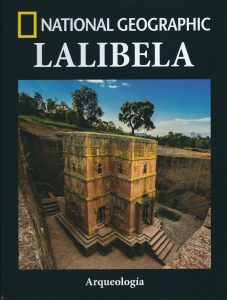
The festival of Timkät, Timkat or Timket (in Ge’ez ????, ??mqät) is one of the most famous in Ethiopia and Eritrea. It is celebrated on the 11th day of the month of T?rr (??), which usually coincides with January 19 of the Western calendar, although due to the particularity of the Ethiopian calendar in leap years it would coincide with the 20th. The Baptism of Christ in the Jordan was performed by Saint John the Baptist, a fact celebrated by all of Christianity, although in the Ethiopian tradition it takes on special importance.
In Timkat family and friends take the opportunity to get together and eat the meat of the animals sacrificed for the occasion, generally sheep, chickens and oxen. In addition, large quantities of tej, beer (tella) and brandy are drunk, all of them homemade.
The festival itself lasts three days. At sunset on the first day, that of Kätära (???), the tabot -a replica of the Ark of the Covenant that is the heart of any Ethiopian temple- is taken out of its church to take it to the nearest stream or pond. The tabot is escorted by all kinds of clerics dressed in bright colors and protected by parasols, who are accompanied by numerous faithful who wish to participate in the beautiful procession.

Once in the Epiphany pool, the tabot settles in a tent next to one of its banks, where it will spend the whole night. You will not be alone, as many worshipers stay in the place keeping vigil as they light torches and sing hymns and songs. In some cases, such as the Janhoy Meda (???? ??) pond in Addis Ababa, there may be several tabots in the same place, coming from different churches. The attending public usually bring food and drinks to give to the priests, who are highly respected throughout the country.
At dawn on the day of the Epiphany, the priests proceed to pray the prayers of blessing the water from the pond, with which, immediately afterwards, they begin to spray the assistants with cauldrons or even spray. The act symbolizes the renewal of the sacred bond of Baptism, or what is the same, the confirmation of the believer’s faith.
Once the ritual is over, all the tabots return in procession to their temples except for one, which will remain in the same place for another night. Once again, the festive atmosphere, the psalms and the songs will enliven the evening.
The third and last day of the festival is dedicated to Saint Michael, a saint who is highly revered in Ethiopia and Eritrea for his facet of defeating the Devil. At the end of the morning, the tabot tent is dismantled and the sacred object is returned to its temple, always with the usual procession.

Wikipedia
Where to see it
Although it is celebrated in practically the entire area of the country’s Orthodox Christian majority (Tigray, Amhara and part of Oromia states), perhaps the best-known place where Timkat is celebrated is the Fasiladas’ Bath, a beautiful pavilion located in the middle of a rectangular pond in the city of Gondar. The Timkat of Lalibela and Addis Ababa are also very famous.




 https://orcid.org/0000-0003-2855-3195
https://orcid.org/0000-0003-2855-3195
Comentarios recientes